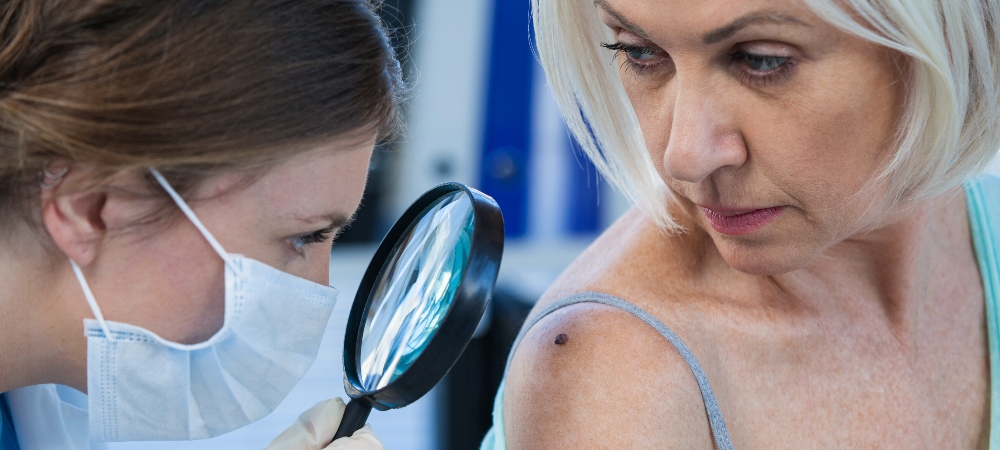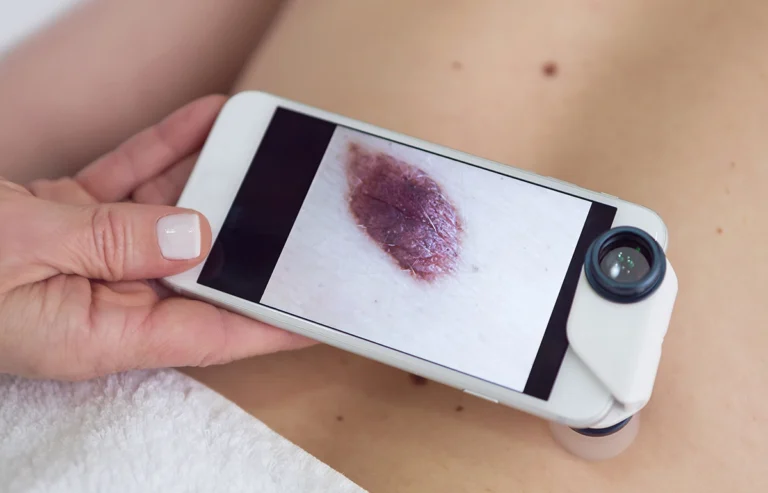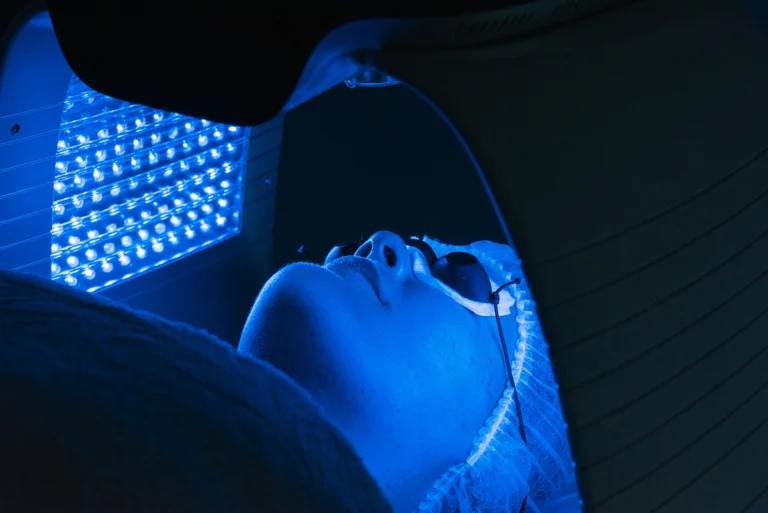
Each year in the United States, more than 6 million skin cancer cases are treated, making it the U.S.’s most common type of cancer overall. Of those diagnoses, the majority are nonmelanoma skin cancers (including basal and squamous cell skin cancers), which have a very high cure rate when detected and treated early on.
May is Skin Cancer Awareness Month, a time dedicated to raising awareness about the most common cancer in the United States. In 2025, it’s estimated that over 104,000 new cases of melanoma will be diagnosed, alongside millions of non-melanoma cases. Fortunately, many of these are preventable. Join us this May in sharing sun safety tips, promoting early detection, and educating your loved ones about non-surgical treatment options like Image-Guided Superficial Radiotherapy (IG-SRT).
#SharetheFacts
Whether it’s on social media or in a group text message with your friends and family, start sharing the important skin cancer facts with those around you. And you don’t have to limit your sharing to just during Skin Cancer Awareness Month – we could all use a reminder to practice skin safety every now and then, no matter the time of year. The Skin Cancer Foundation has put together a Skin Cancer Awareness Month toolkit that is a great resource to help you #SharetheFacts. Download the free images containing informative facts and statistics and share them today.
Evaluate Your Sun Protection
Skin Cancer Awareness Month happens every May. As we approach summer, it’s crucial to revisit your skin cancer prevention tips to ensure optimal protection. Pull out your favorite sun hat and check out your sunscreen supply. If your sunscreen has expired, you’ll want to replace it with a new bottle to ensure you’re getting full protection from it.
In addition to checking your sunscreen’s expiration date, the American Academy of Dermatology (AAD) recommends using a broad-spectrum sunscreen with SPF 30 or higher, wearing protective clothing, and reapplying every two hours—especially after swimming or sweating. Don’t forget to protect often-missed areas like the ears, lips, and tops of the feet. After making sure your sun protection routine is up to date, take one more step toward prevention by joining this year’s awareness campaign.
Join the #SkinCheckChallenge
May is Skin Cancer Awareness Month, and in 2025, the focus is on personal responsibility in early detection. The #SkinCheckChallenge encourages individuals to perform regular skin self-exams to identify any new, changing, or unusual spots that could indicate non-melanoma skin cancers like basal cell carcinoma or squamous cell carcinoma.
How to Participate:
- Conduct a Skin Self-Exam: Examine your skin from head to toe, noting any changes.
- Share Your Commitment: Post a message or image on social media using the hashtag #SkinCheckChallenge to inspire others.
Regular self-examinations are a proactive step in skin cancer prevention. By participating in the #SkinCheckChallenge, you contribute to a community-wide effort to detect skin cancer early and promote healthy skin practices.
Share Your Story With Others
Do you have personal experience with skin cancer? If you’re comfortable doing so, consider sharing your story with others. Although skin cancer is often very treatable, the journey to success isn’t always an easy one. Sharing your story during Skin Cancer Awareness Month can help others recognize how vital it really is to protect yourself.
Reach Out to the Young People in Your Life
Skin cancer prevention starts in your youth. Use Skin Cancer Awareness Month as a chance to start a conversation with the young people in your life about the importance of protecting their skin when they’re outdoors.
Make a Donation
If you are interested in making a donation to help fund skin cancer research, awareness, and prevention efforts, there are plenty of great ways to do so. Check out the Skin Cancer Foundation, or the American Skin Association to get started.
Learn More About Skin Cancer Prevention and Treatment
Want to learn more about skin cancer? Take a moment to browse the GentleCure blog. You will find helpful information on skin cancer statistics, how to tell the difference between squamous and basal cell skin cancers, basal cell skin cancer treatment, and much more. If you or a loved one has been diagnosed with basal or squamous cell skin cancer and you’re researching treatment options, call 855-936-4411 to speak with a Skin Cancer Information Specialist about the benefits of Image-Guided Superficial Radiation Therapy.








